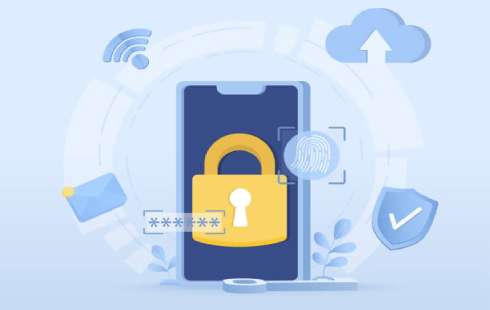In the digital age, where online transactions and financial activities have become commonplace, protecting against online scams is of utmost importance. Cybercriminals are constantly devising new tactics to exploit individuals and organizations, making it crucial to stay vigilant and adopt proactive measures. Here are some essential tips to help you guard against financial scams online.
Use Strong, Unique Passwords:

Strengthen your online security by using complex passwords that include a combination of letters, numbers, and special characters. Avoid using easily guessable information such as your name, birthdate, or common words. Additionally, use different passwords for various accounts to prevent a domino effect if one account is compromised.
Enable Two-Factor Authentication (2FA):
Implementing 2FA adds an extra layer of security by requiring a second form of verification, usually a code sent to your mobile device. This helps protect your accounts even if your password is compromised, as the attacker would need the additional authentication factor.
Keep Software and Antivirus Updated:
Regularly update your operating system, browsers, and antivirus software. Software updates often include security patches that address vulnerabilities, making it more challenging for cybercriminals to exploit weaknesses in your system.
Be Wary of Phishing Attempts:
Phishing is a common method used by scammers to trick individuals into revealing sensitive information. Be cautious of unsolicited emails, messages, or calls asking for personal or financial details. Verify the legitimacy of requests by contacting the company or individual directly through official channels.
Verify Websites and URLs:
Before entering any personal or financial information on a website, ensure that it is secure and legitimate. Look for “https://” in the URL and a padlock icon in the address bar. Be wary of websites with misspelled URLs or unfamiliar domains.
Monitor Your Accounts Regularly:
Stay vigilant by regularly monitoring your bank and credit card statements. Report any suspicious transactions or unauthorized activities immediately. The sooner you identify and report potential scams, the quicker authorities can take action.
Educate Yourself:

Stay informed about common online scams and tactics used by cybercriminals. Knowledge is a powerful defense, and understanding the latest threats can help you recognize and avoid falling victim to scams.
Use Secure Wi-Fi Connections:
Avoid conducting sensitive transactions or accessing confidential information over public Wi-Fi networks. If necessary, use a virtual private network (VPN) to encrypt your internet connection and enhance security.
Limit Personal Information Shared Online:
Be cautious about the personal information you share on social media and other online platforms. Cybercriminals often gather information from various sources to target individuals more effectively.
Trust Your Instincts:
If something feels off or too good to be true, it probably is. Trust your instincts and be skeptical of unsolicited offers, especially those promising substantial financial gains. Take the time to verify the legitimacy of any unexpected communication or opportunity.
By adopting these proactive measures and staying vigilant, you can significantly reduce the risk of falling victim to financial scams online. Protecting your personal and financial information is an ongoing process that requires a combination of technological safeguards and individual awareness. Stay informed, be cautious, and prioritize your online security to navigate the digital landscape safely.











